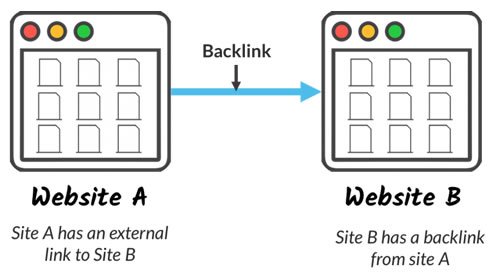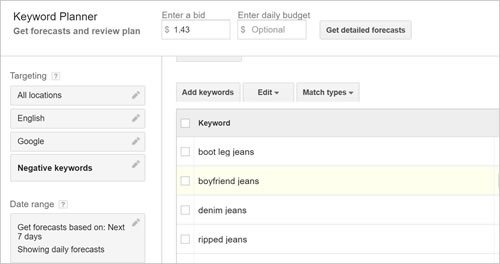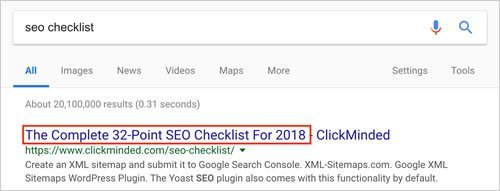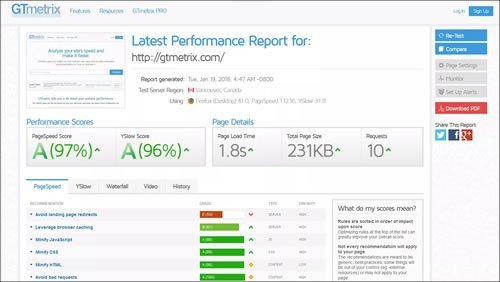10 Tips on How to Rank on the First Page of Google in 2024
![]() by Fabio Peters
by Fabio Peters

How do you rank at the top of Google?
As we get further into the new year, there are newly updated rules to follow if you want to rank on the first page of Google in 2024. Last year, we went through the Google ranking factors where we outlined the best practices for giving your website the best chance of ranking on the first page of Google.
In the following blog, I’m going to give you an update on what you need to do to not fall off the first page of the SERPs.
With approximately 4 billion searches made on Google every day, today’s online marketers, website owners, and online businesses must know how to perform well in organic search results. To do this, we need to know what ranking factors Google looks for when ranking content on the web.
Every year, we learn more and more about what Google’s algorithm considers important. But, the reality is that Google has never actually released a list of its ranking factors.
So, it is still a guessing game and trial and error to find out what helps boost our rank and position on the search engine results page.
What we do know (mainly because Google has pretty much confirmed it) is that there are over 200 SEO ranking factors in determining organic search ranking.
Some of these factors include domain name, on-page content, off-page content, site-level factors as well as many procedural SEO factors that will help Google determine your website’s importance to the related topic in your industry.
Yes, I know what you are thinking. Two hundred factors is a very long list to keep track of. You don’t necessarily need to memorize all 200 of them. There are a lot of great resources you can use as a reference. Here you can see the SEO list of ranking factors on one page.
So, now you want to know if all the ranking factors are of equal importance, right? Well, not really. While I would highly advise using as many of the 200 factors as possible, there are some I would give much more importance to and focus on.
To make this easier for you to work with over the next few months and years, I’ve created a list of the most important factors to concentrate on.
1. The URL structure of your website
It’s important to organize your URLs in a way that makes it easier for Google to understand what the topic of your page is about.
This means modifying your slugs (text at the end of your URL). For example, if you have a blog on “how to create a website”, the best way to create a URL for this blog would be something like this.
https://www.mywebsite.com/blog/how-to-create-a-website
While there are factors that have much more significance and importance than this one, it is good practice to get your URLs to reflect what the topic is about.
2. Make sure your website and domain are secure
If your website still has not upgraded from HTTP to HTTPS, you will be penalized by Google. This is a very important ranking factor.

Google is very serious about making sure your website is secure and has made this mandatory for all websites. So much so that online website builders such as Wix or Shopify have made it part of what they automatically offer in their packages.
The difference between the two HTTP HTTPS virtual processes is obvious. There is an “s” at the end of HTTP (HyperText Transfer Protocol) that stands for “secure”. To get this, all you have to do is purchase an SSL certificate for your website.
Editorial Process:
The reviews on this site are crafted through diligent research, collecting expert insights, and drawing from genuine, real-world experience. You can learn more about our editorial process here.
It’s worth noting that certain links within this article may be affiliate links. This means that if you choose to purchase a paid plan through these links, we may receive compensation at no extra cost to you. Rest assured, these are products and services that we have personally tested, used, and wholeheartedly endorse. We want to emphasize that our website is not intended to offer financial advice. Your trust and satisfaction are our top priorities.
Table of Contents
- How Do You Rank At The Top Of Google?
- The URL structure of your website
- Make sure your website and domain are secure
- Get quality backlinks to your website
- Be the authority in your niche
- Your content centers around user intent
- A good user experience (UX) keeps people engaged
- Optimize the key meta tags
- Page speed is important to Google
- Local listings help drive traffic
- People are increasingly using voice search
3. Get quality backlinks to your website
I can’t state enough how important this one is. These are what are known as “backlinks”. These are links from other websites on the web that link back to your website.
Google sees this as a major signal of authority. If people are willing to link to you from their website, then your content must be of significant value. It is a signal of trust and authority, which are both very important to Google.
There are many ways to get links to your website. But, be sure not to violate Google’s guidelines by getting spammy links. Also, make sure you get backlinks naturally, don’t try to buy them. You will get penalized. Google is smart and can detect when you are trying to trick its system.

4. Be the authority in your niche
When you write about specific topics regularly, Google learns more about what you are about. The more blogs you publish on a certain topic, the higher each one of your articles about that topic will rank on Google’s results page.
If we go back to our example about “how to create a website”, if Google sees 15-20 blog articles related to website development, it’s safe to say that Google sees your website as an authority in web development.
So, that means your article will have a much better chance of ranking higher in Google’s SERPs as opposed to the article you may write that has very little or nothing to do with creating a website.
5. Your content centers around user intent
Here’s another big one!
As mentioned above, topics are becoming more and more important. But, that doesn’t mean we should neglect the impact of having the right keywords on your page.
Keywords remain a critical ranking factor and are not going anywhere anytime soon. Keyword research is still, by far, the most important thing to focus on when coming up with your website’s SEO strategy.
In the past, Google looked for what was called “exact match” instances of a keyword. Google looked for the most uses of a specific keyword in a web page or blog post.
But today, stuffing your page with keywords is not recommended. It leads to a penalty. What Google now looks for is the intent of the keyword, rather than the number of times it is used.
If we use the “how to create a website” example again, if we wanted to rank well for that keyword, we wouldn’t just put this keyword or phrase over and over throughout the article or page.
Instead, try only mentioning the keyword once, then explain the process of creating a website, its best practices, what content management platforms to use, etc.
When people are getting the information they are searching for, they are more likely to engage with the content and spend more time on the website. Google sees this as a signal of valuable content, which will be rewarded with a higher rank in the SERPs.

6. A good user experience (UX) keeps people engaged
While providing information that visitors are looking for is very important, that’s simply not enough. You need to give your visitors a good user experience which can give you an edge on what you are providing and what your competitors are providing in terms of content.
Good UX (user experience) can include things like small paragraphs of information, rather than long paragraphs. Bullet points and relevant images also make the user experience much more pleasant as it doesn’t make your content hard on the eyes and tiring with too much text.
People don’t want to stare at large chunks of text. They prefer to skim for the information they need. As we touched on above, it is important to keep your visitors on your website as long as possible.
Increasing the duration of the session of a visitor is a strong signal to Google that you have great content that people are finding valuable and informative.
Start Ranking Higher with SEMrush – Start Your Free Trial
Don’t wait – Take the First Step to Transform Your Online Presence!
7. Optimize the key meta tags
Meta tags have been around for a very long time. You often hear how some meta tags are no longer an SEO factor or are deprecated. This misconception leads to people either under-using them or neglecting them together.
Many people also get intimidated by meta tags because they sound like something a programmer would need to do. The truth is that they are very easy to understand and modify.
Many content management plugins simplify the process even further and just requires you to simply follow their instructions and fill in the fields with the relevant text content.
What meta tags do is they help Google understand the purpose of the web page and how the page covers the topic and the targeted keyword. There are many types of meta tags. However, these 3 main types of meta tags are the ones you should focus on the most:
Title Tag
The title tag is exactly what the name implies. It is the title of your blog, article, or webpage that is placed within the title tags of the HTML code of your page. When you do a Google search, the title tag is what you will see as the blue link text in the search results.
These tags can also help Google identify the content on webpages that don’t have a natural blog title to describe themselves by allowing the SERPs to read the HTML-based keyword.
Image Alt Text
Images are very difficult for a computer program or browser to read. Google can’t see an image to know what it is about. That is where ALT tags come in.
To assist Google in reading images, the best thing to do is to add keywords that describe that image to the ALT tag. This will help Google know what the image is about, helping your webpage rank for that keyword.
Meta Description
The meta description is a location to help describe what your webpage is about in a brief paragraph that appears below the blue title tag in Google’s SERPs. This is another perfect opportunity to add specific keywords to help searchers find your page online.
If you use a CMS like WordPress many SEO plugins will assist you in creating a perfect description with the right amount of characters that Google recommends for optimal performance.

8. Page speed is important to Google
Page speed is a very important ranking factor that Google has made a top priority. The speed at which your page loads is a user experience factor. If it takes too long to load, people are likely to leave your website.
The faster your page loads, the more likely a person will stay on your page, consume your content, and therefore will have a greater chance of ranking higher on Google.
The general rule is that your website shouldn’t take more than 8 seconds to load or people will click the back button. The optimal time is recommended at about 3 seconds for visitors to not want to exit your page.
This can vary depending on the type of website you have. Online stores should have a faster loading time of approximately 2 to 5 seconds. People looking to buy products don’t want to wait for images and content to load.
They want the information fast and easy to view pictures and read details of what they are buying.
One of the most common causes of slow websites is images that are not properly optimized to reduce the file size for the web. It is very important to either take your images into an image editor and optimize them for the web, or install an image compressor plugin that will automatically compress the image for you.
There is a very valuable online tool called GTmetrix that will grade your website speed and give you recommendations to fix the speed problems of your website. Simply enter your URL and it will analyze your website for a variety of speed-related issues.

9. Local listings help drive traffic
Do you have a Google My Business listing? If not, it’s time to get one. If you are targeting people locally or in a specific area, you need to understand how local SEO works. According to the latest research on online searches for services, people use their smartphones more than ever to call the business they found on their phones.
Most of the businesses they found are locations based that Google found based on the user’s current local detected by their smartphones. This shows that leads from location-based searches are extremely important in turning leads into customers.
Google’s local search algorithm shows results from a current location in a city, country, or place. For example, if you are looking for Italian restaurants in Toronto on your smartphone or laptop, Google will display local business listings of nearby Italian restaurants.
There is an acronym called NAP (Business name, Address, and Phone Number). Your NAP information should be on your Google listing, your website, and even relevant social media related to your business. It should be displayed the same way in every place your put it.
Getting positive Google reviews is also a good way to help your listing online. Google sees this as another trust factor. But, don’t expect customers or clients to put their reviews or testimonials just because you had a good experience.
They are not always thinking about giving you a review. Don’t be afraid to ask them directly and send them a link so that they can give you a testimonial.
10. People are increasingly using voice search
As mobile is becoming the future of online business, voice search is emerging as a big player in Google search. It is considered the future of search. But, many people believe it’s already been heard.
We already see Siri, Alexa, Google Home, Cortona, and more. This is a precursor of things to come. They are getting us ready for what is expected to be the new normal of how we search for information.
The best way to get your website ready for voice search is to make sure your keyword and phrases are indicated on your website title tags, H1 headers, and the body of your content.
Make it as conversational and natural as possible because this is how people speak. So, it’s how it will be found online.
It’s forecasted that voice search will account for 50% of all online searches by the year 2024. As the popularity of voice search grows, more people will dive into this. It would be a good idea to jump on this early before the market gets saturated and marketers start to find spammy ways to exploit voice.
When this happens, you will find it hard to get found with the voice because Google will undoubtedly have to adjust its algorithm.
It’s a new year, with a new set of guidelines to rank well online. But, many things will never change such as the importance of keywords and user experience.
I hope this brought some value to you. As always if you have any questions regarding your online strategy, please do not hesitate to contact me. Have a great day. Take care!


